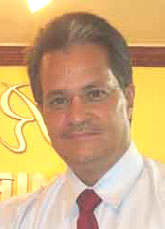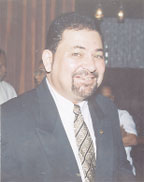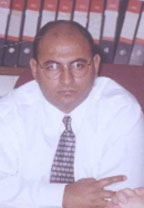Private sector disappointed at lack of ‘real discourse’
The Private Sector Commission says it is disappointed over the “lack of any real discourse between the state and the business sectors” during last Tuesday’s high-level seminar on Guyana’s Privatization and Taxation Policies and Practices.

“The truth is I am disappointed,” Chairman of the Private Sector Commission Captain Gerry Gouveia told Stabroek Business at the conclusion of the forum. “It may well have been a missed opportunity in a way since the seminar brought together the top state administrators in the privatization, investment and taxation sectors and some of the country’s leading businessmen.
Last Tuesday, almost five hours of presentations by state and private sector officials was followed by a forty-minute “question and answer session” conspicuous for the failure of any high-profile businessman to raise a single issue with the panel. While Chartered Accountant and tax expert Christopher Ram sought to grill Head of the Privatization Unit, Winston Brassington on the propriety of privatization procedures, the rest of the business community, drawn from the banking, manufacturing and other sectors made no attempt to make any real inputs.
In his opening address to the forum Finance Minister Ashni Singh had wished the seminar fruitful and constructive deliberations while in his own presentation Commissioner General of the Guyana Revenue Authority (GRA) Khurshid Sattaur had expressed a willingness to entertain and discuss views from the business community on government’s taxation policies.
Significantly, long-standing differences between the state sector agencies responsible for privatization, taxation and investment remained acutely apparent at the conclusion of last Tuesday’s forum. Gouveia, whose presentation at the forum sought to sum up private sector concerns, stated that despite the seemingly impressive investment portfolio articulated by Go-Invest Head, Geoffrey Da Silva during an earlier presentation, the deepening of private sector involvement in the economy was yet to be converted into meaningful job-creation and better-paying jobs, “Despite a succession of privatization and local and overseas investment initiatives we have still been unable to provide sufficient better-paying jobs to cope with the rising cost of living. One of the consequences of our failure to satisfy the need to find jobs for qualified people is that Guyana is now listed as being among the highest in the world as far as the brain drain is concerned,” Gouveia said.

Meanwhile the PSC Chairman told the forum that some of the organization’s members felt that the Privatization Unit sometimes lacked flexibility and imagination; choosing instead to adopt a hard line. According to Gouveia, rather than being a facilitator the Privatization Unit was simply seeking to operate as a revenue collector and a revenue-earner.
Meanwhile, the PSC refused to be drawn on whether or not it is now prepared to take a more robust position on what a leading businessman in the manufacturing sector described as “the draconian VAT measures imposed by the government.” However, Gouveia told Stabroek Business that the PSC was in the process of securing external help to recruit a consultant to support the inputs which it proposes to make in tax reform discourses with government at the level of the National Competitiveness Council.
Meanwhile, in his presentation to the forum Gouveia said that it was the view of the private sector that the privatization process did not always work in the way in which it was laid-out in the privatization policy paper. “The policy to broaden the base of ownership and competition was not always achieved. As a consequence several of the publicly-owned companies are now privately controlled, sometimes resulting in deteriorating quality of governance and in at least one case such a company has not had an Annual General Meeting for several years.
Meanwhile Gouveia told the forum that the state’s continued ownership of national radio, television and newspaper resources, among others, coupled with the use of Guyana Defence Force aircraft to compete with the private sector aviation industry reflected the fact that government was still a major player in the economy.

While it was always unrealistic to expect that the half-day forum would realize the sentiment expressed by Finance Minister Singh that it could serve to facilitate a frank and constructive encounter between the two sides, neither the state nor the private sector officials extended what was in effect a succession of speeches into any real discourse, the exception being a spirited attempt by Ram and Mc Rae Managing Partner, Ram to grill Head of the Privatization Unit Brassington on the propriety of privatization procedures. Three presentations from Brassington, Go-Invest Head, Da Silva and Commissioner General, Sattaur addressed the procedures associated with privatization, investment and taxation.
